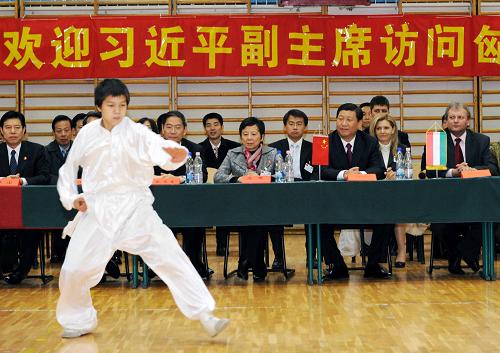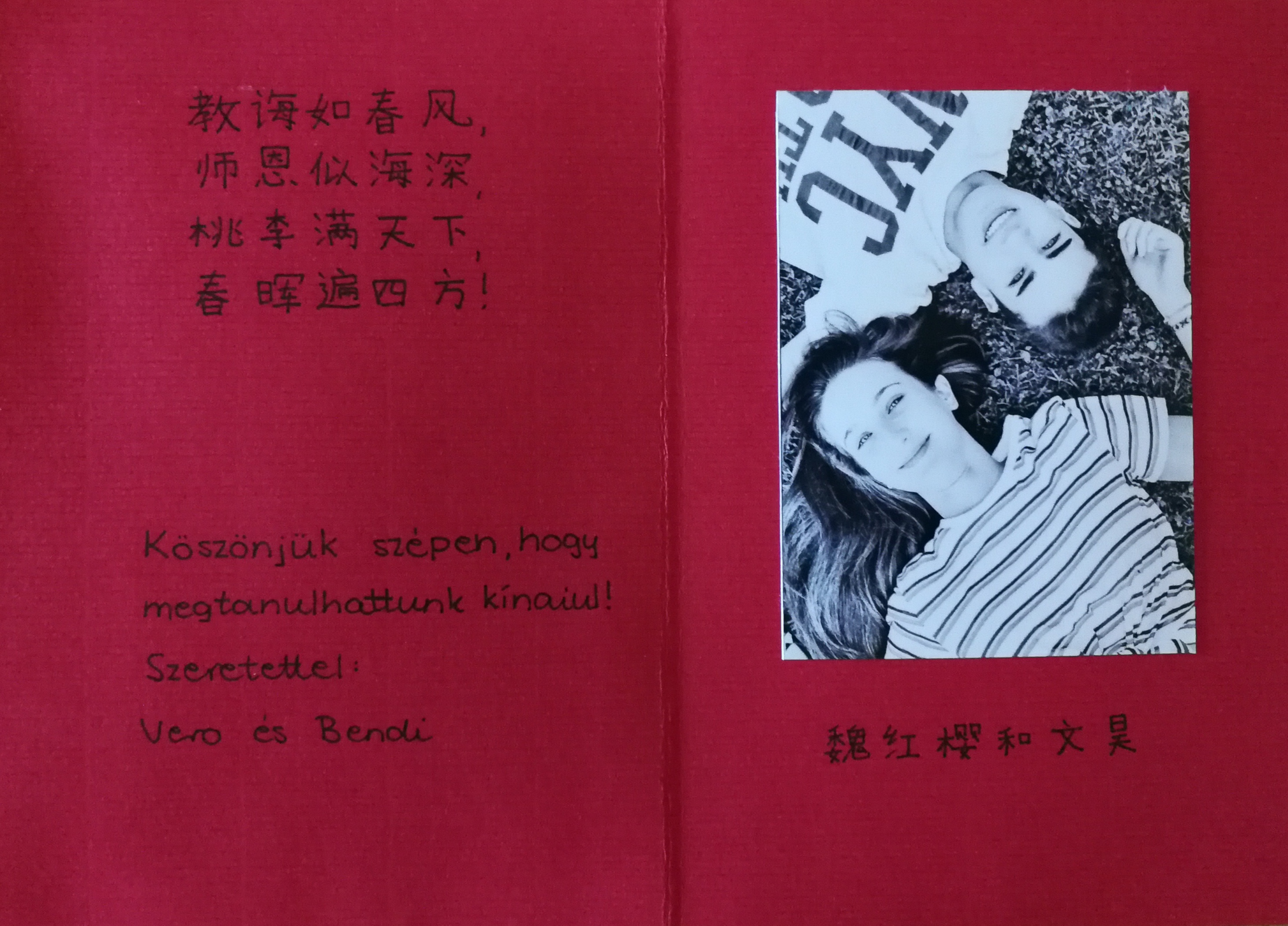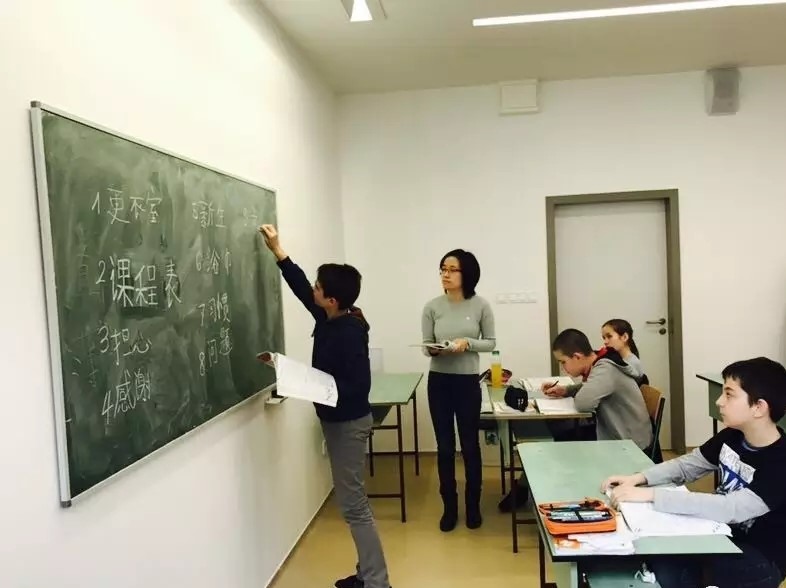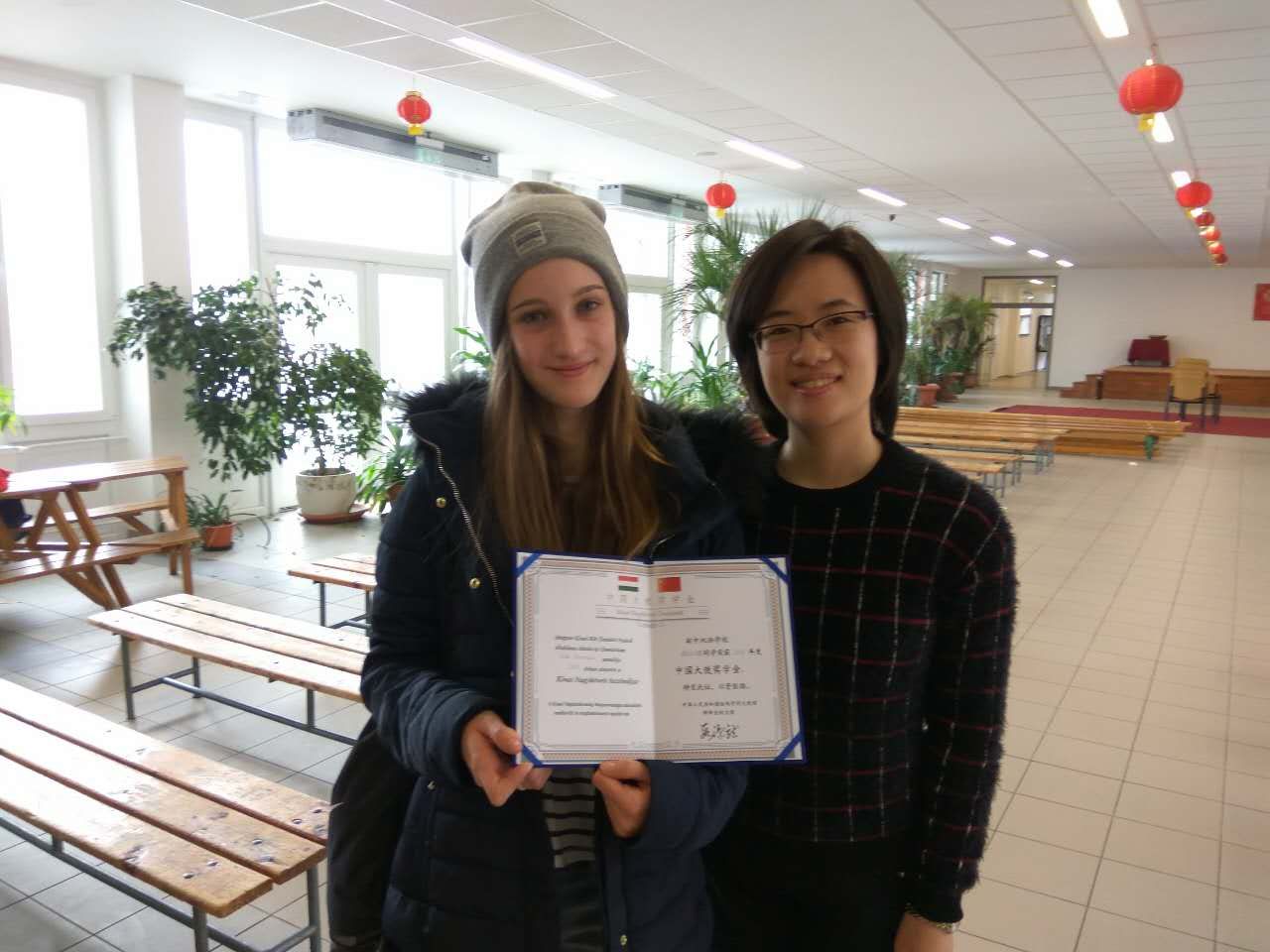
Xi Jinping, then Chinese vice president, inspected the Hungarian-Chinese bilingual school in Budapest on October 16, 2009. Accompanied by the Hungarian Minister of Culture and the head of the school, he visited the Hungarian-Chinese Bilingual School, the only public school in Europe that uses Chinese and local language teaching. (Photo: Xinhua)
For any teacher, these are memorable words: “Your instructions are like spring breezes, your help is as deep as the sea, your students are all over the world, you are bringing spring everywhere.”

“Thank you very much for giving us the opportunity to learn Chinese, Vero and Bendi,” reads this card from two outstanding students of Evelin Wang Yue at the Hungarian-Chinese bilingual school in Budapest. (Photos: Courtesy of Wang Yue)
"I was sincerely pleased and happy when I got the thank-you card," said Evelin Wang Yue, a teacher at the Hungarian-Chinese bilingual schoolteacher in Budapest.
Wang taught the card’s senders, brother and sister Benedek and Veronika Vida, from first grade. And it was a professional milestone for Wang in 2019 when 18-year-old Veronika was awarded the Chinese Ambassador Scholarship.
The school in Budapest was inspected in October 2009 by Xi Jinping, then Chinese vice president. He has constantly stressed cultural exchanges between the two countries since then.
There were 87 students at the school in 2004. Today there are more than 510, Wang noted.
The surge in students is believed to be a reflection of growing relations between the two countries. In May 2017, Hungarian Prime Minister Viktor Orban attended the Belt and Road Forum for International Cooperation in Beijing.
At the forum he and Chinese President Xi Jinping announced a comprehensive strategic partnership between the two countries.
The school’s Confucius Classroom at the Hungarian-Chinese Bilingual School was inaugurated in 2017. It is a full-time public school featuring 12 years of Chinese training.
So far more than 2,000 students have been trained. Nearly 100 cultural events have been hosted and an audience of almost 30,000 has been reached.
Wang’s earliest crop of students are already teenagers and have passed the HSK4 exam, which is a standardized Chinese fluency test. Many aim to take the Chinese college entrance exams.
Hungary has added the Chinese language to the Hungarian national education system and Chinese is an optional foreign language for the Hungarian college entrance examination, Wang told the People’s Daily.

Wang Yue (second from left) teaches students at a class in Budapest.
But back in April 2011 when she started teaching at the school, Wang faced serious linguistic obstacles.
Her students spoke Hungarian only and at that time her Chinese textbooks were all English only. There were few, if any, multimedia interactive classroom teaching materials.
So Wang improvised.
Preparing for class, Wang, who learned to speak Hungarian from May 2010 to April 2011, studied the English-Hungarian dictionary.
For the more vivid vocabulary, like apple or rabbit, Wang drew pictures on the blackboard. Students responded to her art and classroom dialogue improved.
She rewarded students with red dots, cartoon stickers and small gifts.
Meanwhile in her spare time, Wang sifted through the Chinese words in the textbook and keyed them into a computer. Then she read aloud each word out and recorded it.
Parents and teacher then edited the audio files and organized them into an electronic database. The result was her students could now study Chinese at their own leisure and again standards rose.
Wang tried songs, poems and nursery rhymes. Students played games, sang and danced.
Wang shared cultural experiences like calligraphy and paper-cutting with students as they grew older.
Her life’s work reflects the “people-to-people” ambitions for China-Hungary relations of the Chinese president and his Hungarian counterpart.
On May 15, 2020, in a phone call with Hungarian Prime Minister Orban, President Xi noted that emerging from the test of COVID-19, the traditional friendship between China and Hungary would grow deeper and bilateral cooperation would enjoy broader prospects.
For the post COVID-19 era, the two countries should step up high-level interactions, strengthen trade, investment and other traditional areas of cooperation, explore the digital economy, artificial intelligence and other emerging areas, and “promote people-to-people and cultural exchanges,” Xi said.

Student Veronika Vida and teacher Wang Yue celebrate her Chinese Ambassador Scholarship. Established by the Chinese Embassy in Hungary in 2016, the scholarship supports the educational development of bilingual schools.
Wang has been helping organize summer camps and tours for students to see the Great Wall, the Huangpu River, the Three Gorges Dam, the Terracotta Warriors and kung fu performances.
She encourages her students to communicate and make friends with ordinary Chinese people at every opportunity in real-life contexts.
“Many of my students told me that when they grow up, they would like to go to university in China and work on a job that they can use Chinese as a skill they learned,” Wang said.


